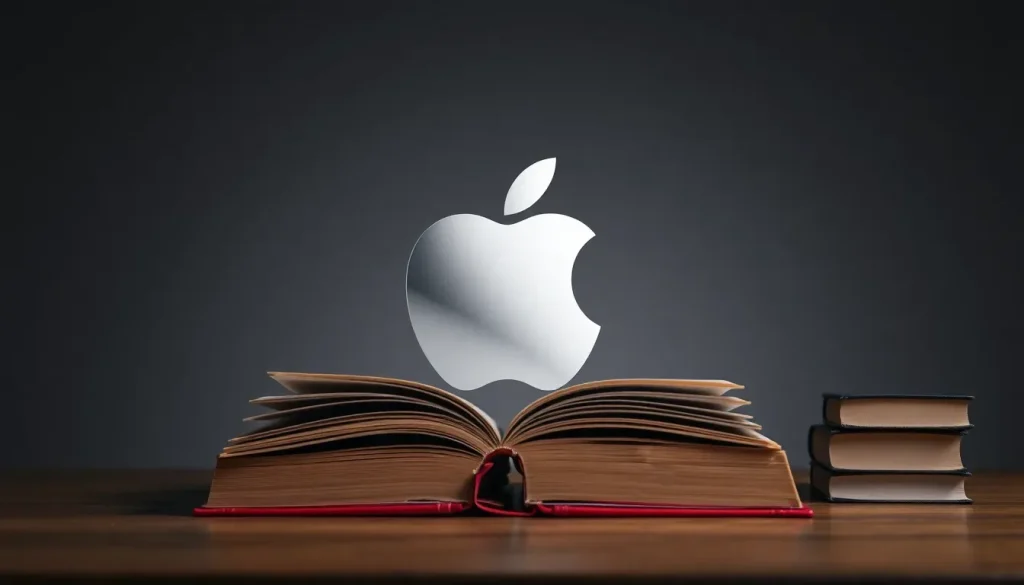Academics sue for use of pirated books in Apple training

In the evolving landscape of artificial intelligence, the intersection of creativity, technology, and copyright law is increasingly contentious. A recent class-action lawsuit against Apple by two academic authors underscores the complexities surrounding the use of pirated content in AI training. This case opens a Pandora's box of questions regarding copyright, fair use, and the ethical implications of AI development.
Background of the lawsuit
Professors Susana Martinez-Conde and Stephen Macknik, affiliated with SUNY Health Sciences University in New York, have filed a class-action lawsuit against Apple. Their grievance arises from the alleged use of their books, specifically Champions of Illusion: The Science Behind Mind-Boggling Images and Mystifying Brain Puzzles and Sleights of Mind: What the Neuroscience of Magic Reveals About Our Everyday Deceptions, in training models for Apple Intelligence without proper licensing.
The lawsuit claims that these works were integrated into training datasets used to develop Apple's Foundation Intelligence Models and OpenELM language models, all without the authors' consent. The plaintiffs argue that their copyrighted materials are being utilized to enhance model performance and to filter out copyrighted content from user outputs.
Understanding the 'Books3' shadow library
One of the central elements of the lawsuit is the Books3 shadow library, a notorious repository that housed a vast number of pirated texts. Within this library, Apple reportedly sourced materials for its AI training. The controversy deepened when Apple acknowledged in April 2024 that it incorporated a collection known as The Pile, which includes the Books3 dataset.
At its peak, Books3 contained over 186,640 titles, all indexed through a private BitTorrent tracker called Bibliotik. The plaintiffs’ works were among those listed, raising significant concerns about copyright infringement.
Legal implications and challenges ahead
The lawsuit is not merely a trivial dispute; it raises profound questions about the legality and ethics of using copyrighted materials for AI training. A few critical points to consider include:
- Fair Use vs. Copyright Infringement: The legal landscape surrounding AI training is murky. Courts have previously ruled on cases involving similar issues, establishing precedents that complicate matters for companies like Apple.
- Differences in Practices: Apple’s approach to AI training differs from that of other tech giants. For instance, Google often summarizes content from unlicensed sources, which raises its own set of ethical questions.
- Document Tracking: Apple has not provided clear records on which specific documents were used for training, complicating the plaintiffs' case as they must prove their works were explicitly utilized.
- Potential Damages: Under U.S. copyright law, willful infringement can lead to hefty penalties. The plaintiffs are seeking damages that could reach up to $150,000 per work if willful infringement is established.
The precedent from previous cases
Previous legal disputes have set important precedents in this area. For example, in a notable case involving Anthropic, a judge ruled that while the company made fair use of up to seven million books, it violated copyright laws by maintaining a centralized library of the texts used for training. This outcome highlights the thin line between legal use and copyright infringement in the AI context.
The complexities of copyright law in the digital age, particularly concerning AI, continue to evolve. With companies increasingly relying on vast datasets for training, the implications for authors and content creators are profound.
Apple's response and the future of the lawsuit
As of now, Apple has not publicly commented on the lawsuit's merits. The plaintiffs are requesting a jury trial and monetary damages, alongside an injunction to prevent Apple from using their copyrighted material in the future. However, the case presents challenges for the authors, including verifying that their specific works were indeed used in the AI training process.
While the plaintiffs claim that the day Apple Intelligence was released was "the single most lucrative day in the history of the company," the valuation gains have fluctuated since then. Apple's gradual rollout of its AI capabilities raises further uncertainties about how the outcomes of this lawsuit may influence the company's future strategies.
Implications for the broader AI landscape
This case is emblematic of the larger struggle between innovation in artificial intelligence and the rights of content creators. As AI becomes an integral part of various industries, the balance between leveraging existing content and respecting intellectual property rights is becoming increasingly critical. The outcomes of this lawsuit could have significant implications for:
- Content Creators: Ensuring fair compensation and recognition for their work.
- Tech Companies: Navigating the legal landscape of copyright as they develop new AI technologies.
- Legal Precedents: Establishing guidelines for future cases involving AI training and copyright challenges.
The situation remains fluid, with no trial date set yet for Martinez-Conde and Macknik vs. Apple. As the legal battle unfolds, it will be critical to monitor its developments and the broader implications for the future of AI and copyright law.
For further insights into the ongoing debates surrounding AI and copyright, you can watch this informative video:




Leave a Reply